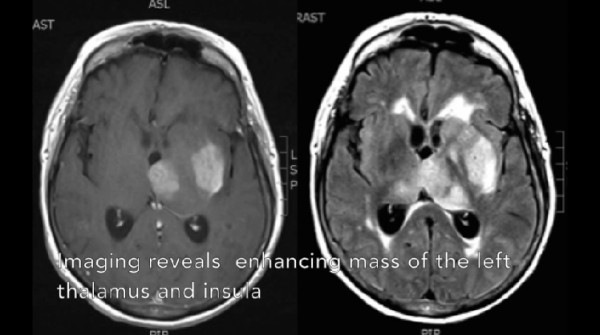According to a new study published in the journal Cell, thoughts can increase the growth of some deadly brain tumors, Newser reported.
Researchers have discovered that high-grade gliomas hijack the process of creating thoughts and increase in size. High-grade gliomas account for 80 percent of all malignant brain tumors in people. These deadly brain tumors frequently spread to the cerebral cortex, the outer layer of the brain that helps people use language, form conscious thoughts and perceive the world.
High-grade gliomas hijack a process called myelination. Myelination forms a layer of insulation around nerve fibers and allows them to carry thoughts more efficiently.
Scientists looked at mouse models and discovered that the brain tumors developed quickly when they were nearer to highly active nerve cells. Michelle Monje, senior author of the study, said that it is uncommon for an organ's primary function to drive the tumor growth within it.
She further said that they do not think about bile production encouraging the growth of liver cancer or breathing promoting lung cancer growth. However, they have demonstrated that brain function is driving these brain cancers.
Researchers identified a particular protein, called neuroligin-3, which is responsible for increasing the tumor growth associated with thoughts in the cerebral cortex. In healthy tissue, the protein neuroligin-3 directs the formation of synapses. However, this study showed that a secreted form of neuroligin-3 encourages the growth of tumors.
Scientists implanted human cancer cells into the brains of mice and then used light to activate neurons near the tumors. They observed increased tumor size in the mice that got stimulation using light. This indicated that neuronal activity fed the brain tumors.
Theoretically, doctors could impede the tumor growth by using sedatives that decrease mental activity. However, Monje said that is not a feasible option because it would not remove the tumor and they do not want to prevent individuals with brain tumors from being active, learning or thinking, according to NPR.
The researchers expect that their work will result in the development of drugs that particularly inhibit the tumor-stimulating activities of the protein neuroligin-3.


